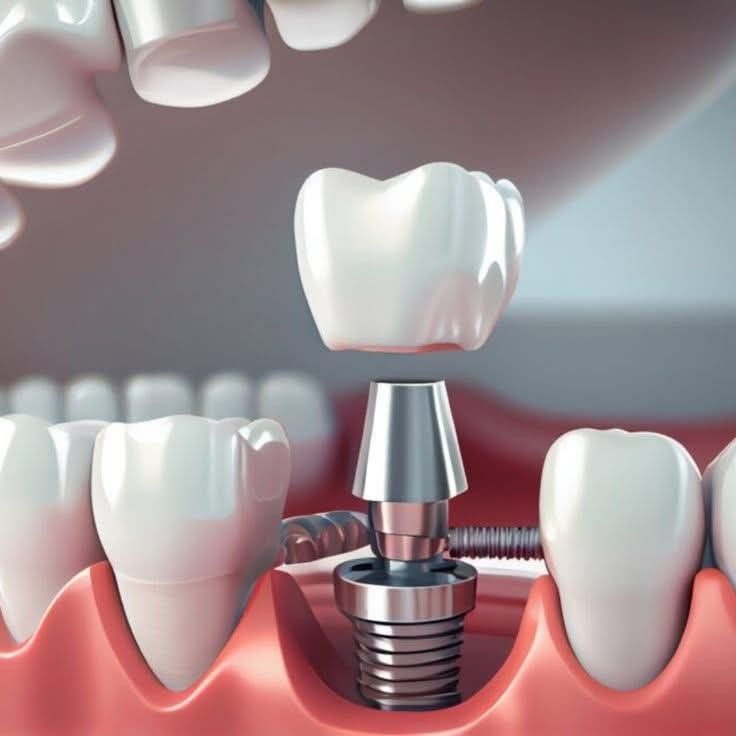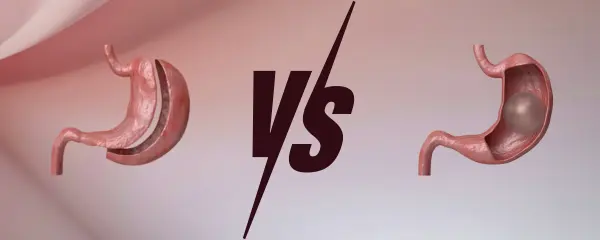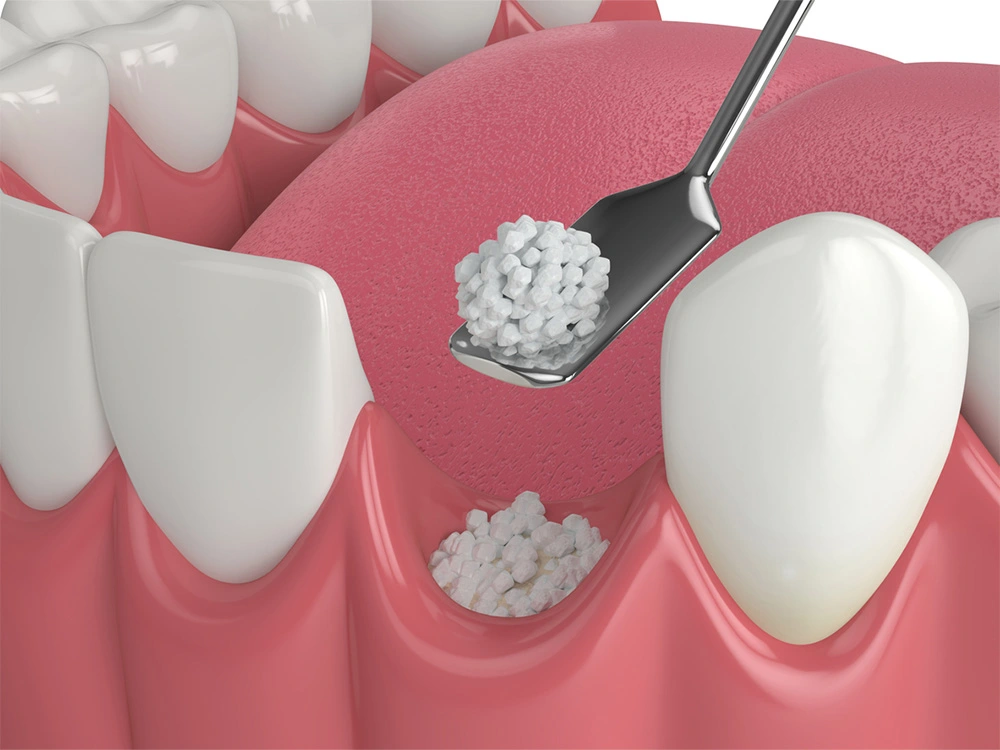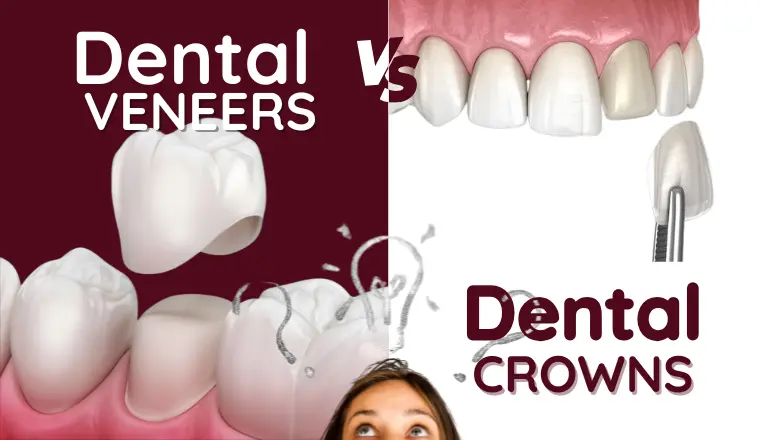
Why Do People Look for the Cheapest Country for Dental Implants?
Dental implants are among the most in-demand medical procedures worldwide due to their essential role in restoring a natural smile, improving oral function, and boosting self-confidence. However, the high cost of treatment in some countries leads many individuals to seriously consider medical travel in search of high-quality care at reasonable prices. This raises the most frequently asked question: What is the cheapest country for dental implants without compromising on quality?
In this article, we offer a comprehensive comparison of global dental implant prices, an in-depth analysis of the factors that influence cost, and why Turkey is considered one of the world’s top destinations for dental implant treatment — particularly within licensed and accredited health institutions certified in medical tourism.

What Are Dental Implants?
Dental implants are one of the most advanced procedures in modern dentistry and offer a reliable and long-term solution for replacing missing teeth. They restore both function and aesthetics to the mouth and smile. Thanks to technological advancements, implants have become the preferred choice for millions of patients worldwide due to their durability and ability to mimic the look and function of natural teeth.
One of the key benefits of implants is their ability to preserve the jawbone structure and prevent bone deterioration — a common issue following tooth loss. This also helps avoid changes in facial appearance and prevents complications in the temporomandibular joint (TMJ).
Detailed Explanation of the Dental Implant Procedure
Dental implants are a highly sophisticated surgical solution for missing teeth. They replicate the natural tooth’s root and crown using biocompatible materials, typically titanium or specialized alloys, which are surgically placed into the jawbone. Here's a detailed step-by-step overview:
1. Diagnosis and Precise Planning
The process begins with a comprehensive clinical and radiographic assessment of the patient’s oral health. This includes checking the condition of the remaining teeth, bone density, and surrounding soft tissues. State-of-the-art imaging techniques like Cone Beam CT scans are used to generate accurate 3D visuals of the jaw, identifying critical structures like nerves and sinuses. This enables the dental team to develop a personalized treatment plan that ensures optimal implant placement and long-term success.
2. Implant Surgery
After finalizing the treatment plan, the implant is placed surgically under local anesthesia to ensure maximum patient comfort. A small incision is made in the gum to expose the bone, and a channel is precisely drilled to accommodate the implant fixture. The implant is then inserted into the bone, mimicking the function of a tooth root. In some cases, immediate implantation is performed at the time of tooth extraction, helping reduce treatment time and improve healing.
3. Osseointegration Period
This is one of the most critical stages for implant success. The term “osseointegration” refers to the biological process where the bone cells grow and attach firmly to the surface of the implant. This healing phase typically takes 3 to 6 months, during which the implant becomes fully stable and integrated into the jaw. Close monitoring by the dental team is essential during this period to prevent infection and ensure a solid foundation for the prosthetic crown.
4. Abutment Placement
Once osseointegration is complete, a minor procedure is performed to place the abutment — a connector between the implant and the artificial crown. In some systems, the abutment may be placed immediately after implant insertion, depending on bone quality and implant stability. The abutment serves as the visible part above the gumline, ready to support the final restoration.
5. Crown Restoration
This final step involves fabricating and placing a custom-designed crown that matches the shape, color, and size of the patient’s natural teeth. Crowns are typically made from high-quality materials like zirconia or porcelain, offering superior durability and aesthetics. The crown is securely attached to the abutment, restoring the patient's ability to chew, speak, and smile confidently.
Additional Benefits of Dental Implants
Dental implants offer numerous long-term and holistic benefits that make them a preferred solution for patients seeking to restore their oral health and quality of life:
- Long-Lasting Durability: Thanks to the high-quality biocompatible materials and the strong bone integration achieved through modern techniques, dental implants can last for decades — often a lifetime — when cared for properly, making them a cost-effective investment in the long run.
- Bone and Jaw Preservation: Unlike dentures or bridges, implants help stimulate the jawbone and prevent the bone loss that typically occurs after tooth extraction. This preserves the natural facial structure and prevents unwanted changes in appearance, such as sunken cheeks or premature aging.
- Improved Functionality: Dental implants provide superior stability and biting force compared to removable dentures or traditional bridges, allowing patients to eat, speak, and chew with confidence and ease.
- Psychological and Aesthetic Comfort: By restoring the natural appearance of the smile, implants can boost self-confidence, eliminate embarrassment caused by missing teeth, and improve overall psychological well-being.
Modern Technologies in Dental Implantology
In recent years, dental implant procedures have benefited from groundbreaking technological advancements that have significantly enhanced precision, reduced discomfort, and improved overall treatment outcomes. Some of the most notable innovations include:
- Computer-Guided Implant Surgery: This technique relies on precise digital planning using 3D scans to determine the optimal implant positions. It allows for minimally invasive surgery with smaller incisions, reduced trauma, and faster recovery time.
- Immediate Implant Placement: In suitable cases, implants and temporary crowns can be placed in a single session, eliminating the need for multiple visits and accelerating the patient's path to a full smile.
- Advanced Implant Materials: The use of treated titanium, surface-modified implants, and bone grafting materials has led to higher success rates, better osseointegration, and reduced risk of complications or implant rejection.
In conclusion, dental implants today represent a comprehensive medical solution for restoring both the function and aesthetics of the smile. They combine long-lasting durability with natural results and are now more comfortable and efficient than ever, thanks to continuous advancements in dental science and technology.
Global Dental Implant Price Comparison
The cost of dental implants is one of the primary factors influencing a patient’s decision when selecting the country or provider for their treatment. Prices vary widely depending on several key variables, including:
- The local cost of living
- Dental material costs
- The experience and reputation of the dental professionals
- The availability of modern technologies and facilities
To illustrate the differences more clearly, here is a general comparison of the average cost of a single dental implant in various countries around the world. Please note: prices may vary based on the city, clinic, implant brand, and crown material used:

As this comparison shows, Turkey offers some of the most affordable dental implant prices in the world, without compromising on quality. This is due to a unique combination of economic factors, healthcare infrastructure, and a thriving medical tourism sector — which we will explore in the next section.
Understanding the Price Differences
These figures clearly highlight the substantial gap between the cost of dental implants in Turkey and those in Western and other global countries. Turkey stands out as one of the few destinations that combine high-quality treatment with highly affordable pricing. This cost advantage can be attributed to several key factors:
- Lower Cost of Living and Labor: The overall cost of living in Turkey is significantly lower compared to European and American countries, which translates into reduced clinic operating costs, staff wages, and infrastructure expenses — all contributing to lower patient fees.
- Local Availability of Materials and Technologies: Turkey is a regional hub for manufacturing and distributing top-tier dental implant materials. This reduces import costs and logistical fees, making treatments more economical without sacrificing quality.
- High-Level Medical Expertise: Despite the affordable pricing, dentists in Turkey often possess extensive international training and experience, ensuring top-tier treatment outcomes comparable to those in more expensive countries.
- Highly Competitive Market: The presence of numerous dental clinics specialized in implantology drives healthy competition, resulting in competitive pricing and attractive package offers for both local and international patients.
- All-Inclusive Medical Tourism Packages: Many healthcare institutions in Turkey offer comprehensive packages that cover everything from diagnosis to accommodation and transfers, creating significant cost savings and a stress-free experience for patients.
What Does This Mean for Patients?
For patients, choosing Turkey as their dental implant destination means gaining access to the same level of quality and professionalism as clinics in Europe or North America — but at a fraction of the cost, often saving up to 70%. This affordability, combined with medical excellence, makes Turkey one of the top choices worldwide for those seeking reliable and cost-effective dental implant solutions.
Important Tip for Medical Travelers
To ensure both safety and quality, patients are strongly advised to seek treatment within licensed medical institutions that are accredited by the Turkish Ministry of Health and possess official certification in health tourism. This guarantees that the treatment is performed under strict medical standards with proper patient rights protection.
Why Turkey Is the Most Affordable and Outstanding Destination for Dental Implants
Turkey has emerged as a global leader in dental tourism, particularly in the field of dental implants. While competitive pricing plays a major role, it is the exceptional quality of care, professionalism, and holistic treatment experience that sets the country apart. Here's why Turkey continues to attract thousands of dental patients every year:
1. Significantly Lower Treatment Costs
Dental implant procedures in Turkey are among the lowest priced globally, with potential savings of 60–70% compared to Western countries. This cost reduction is due to:
- Low Operational Costs: Including wages, rent, utilities, and logistics — all substantially lower than in Western Europe or the U.S.
- Exchange Rate Advantage: The strength of foreign currencies against the Turkish Lira allows international patients to benefit from extremely favorable pricing.
- Government Support for Health Tourism: Turkey’s government actively supports the medical tourism sector through streamlined procedures and investment in advanced healthcare infrastructure.
2. Highly Skilled Medical Professionals
Turkey is home to numerous dental specialists with advanced international qualifications, many of whom have trained in Europe and North America. This means patients benefit from global-level expertise without the associated high costs. Clinical teams are also known for their meticulous attention to detail and commitment to patient outcomes.
3. Use of Advanced Dental Technologies
Renowned dental clinics in Turkey employ state-of-the-art technology to ensure precision, safety, and aesthetics. Among the most commonly used tools and techniques:
- 3D Cone Beam CT Imaging: Allows accurate assessment of jawbone and surrounding tissues before implant placement.
- Digital Smile Design: Enables virtual planning of the final result, ensuring harmony with facial features and personal preferences.
- Computer-Guided Implant Surgery: Ensures implants are placed in exact optimal locations, improving both comfort and success rates while reducing healing time.
4. Comprehensive and Inclusive Treatment Packages
Many Turkish healthcare institutions offer turnkey dental treatment packages that include:
- Consultation and diagnostics
- Implant placement surgery
- Hotel accommodation
- Airport-hotel-clinic transfers
- Follow-up visits and patient aftercare
These packages are designed to make the treatment process seamless, efficient, and cost-effective — especially for international patients.
5. A Rich and Inviting Tourism Experience
Turkey also offers patients the opportunity to combine their dental journey with a memorable travel experience. From Istanbul’s iconic architecture and cultural heritage to the natural beauty of the coastlines and historical sites — medical tourists can relax, recover, and explore all at once.
📌 All treatments and services are carried out in health institutions accredited by the Turkish Ministry of Health and possessing a certificate of authorization in health tourism. This ensures adherence to the highest medical and safety standards, while safeguarding patient rights and clinical excellence.
Additional Details About Dental Implants: Costs, Quality, Techniques, and Duration
Costs
The cost of dental implants includes several key components that must be considered to fully understand the total expenses involved:
- Implant Fixture (Titanium Screw): Usually made of high-quality titanium or ceramic, the cost varies based on the implant brand, material, and design.
- Crown (Artificial Tooth): This is the visible part placed over the implant, typically made of porcelain or zirconia. The price depends on the material used and the degree of aesthetic customization.
- Diagnostic Tests: These include 3D X-rays (CBCT) and comprehensive oral examinations to ensure precise treatment planning.
- Surgical Procedure: Performed under local anesthesia with sterile protocols, this covers the cost of the surgery for placing the implant.
- Post-Treatment Services: Follow-up appointments, placement of the final crown, and maintenance visits are often included.
Quality
Quality is the cornerstone of successful dental implant treatments. Reputable centers use biocompatible, high-durability materials and adhere to global sterilization standards to ensure patient safety and long-term results. Additionally, internationally recognized treatment protocols are followed to achieve maximum success in both function and aesthetics.
Advanced Techniques
Recent years have witnessed remarkable advancements in dental implant technology. Many premium clinics now offer:
- 3D Digital Planning: High-resolution imaging provides detailed assessment of the jawbone to determine the optimal implant position.
- Computer-Guided Implant Surgery: Specialized software directs the implant placement with extreme accuracy, reducing risks and shortening healing time.
- Digital Smile Design (DSD): Enables precise customization of the crown to ensure a natural look that complements the patient's facial features.
Treatment Duration
The duration of a dental implant procedure depends on the patient’s oral health and the chosen technique. Typically, a complete dental implant process takes 3 to 6 months, including:
- Osseointegration Time: A healing phase where the bone fuses with the implant to provide solid anchorage.
- Abutment Placement: A small connector is attached to link the implant and the crown.
- Final Crown Placement: A permanent crown is attached to restore function and aesthetics.
In some cases, immediate implants can be performed, where a temporary crown is placed on the same day as surgery. This offers faster restoration of function and appearance, provided the patient's bone condition is favorable.
Types of Dental Implants and Advanced Techniques
Dental implants are available in various types to meet specific medical and functional needs. Each type offers distinct advantages in terms of durability, functionality, and aesthetics. Here’s a detailed breakdown:
1. Single Tooth Implant
Used to replace a single missing tooth. A titanium post is embedded in the jawbone to serve as an artificial root. After healing, a custom-made crown is attached. This method preserves jawbone structure and restores natural chewing and speech functions.
2. Multiple Tooth Implants
When several adjacent teeth are missing, multiple implants can be strategically placed to support bridges or crowns. This approach avoids removable dentures and offers superior comfort, stability, and function.
3. Full-Arch Restoration (All-on-4 / All-on-6)
Ideal for patients with complete tooth loss in the upper or lower jaw. This technique uses 4 or 6 implants to support a fixed full-arch bridge. The All-on-4 method is particularly cost-effective and efficient, providing a stable and natural-looking solution with fewer implants.
4. Immediate Implants
This modern technique allows for implant placement and temporary crown installation in a single visit or within a very short period. It's suitable for patients with strong jawbone density and good gum health. The advantage is minimal downtime and instant restoration of aesthetics and basic function.
Modern Technologies in Dental Implants
In addition to the various types of implants, the success of treatment heavily relies on the techniques used — and these have evolved significantly in recent years:
- 3D Cone Beam Computed Tomography (CBCT): This advanced imaging tool offers a highly accurate scan of the jaw structure, enabling precise assessment of bone density and volume, and guiding optimal implant placement.
- Digital Treatment Planning: Specialized software is used to create customized treatment plans tailored to each patient's specific anatomical needs before surgery begins.
- Computer-Guided Implant Placement: This technology allows implants to be placed with unmatched accuracy in ideal positions, reducing surgical risks, enhancing success rates, and shortening recovery time.
- Use of Premium Materials: Bio-compatible materials such as high-grade titanium and zirconia are widely used, offering excellent tissue integration and durability, thus extending the longevity of the implant.
Essential Tips Before Traveling to Turkey for Dental Treatment
When planning to travel to Turkey for medical procedures — especially dental implants or cosmetic dentistry — proper preparation is key to ensuring a safe, effective, and smooth experience. Below are detailed tips to help you plan effectively and achieve optimal results:
1. Verify the Clinic’s Accreditation
The most important step is to ensure that the clinic or medical center is officially licensed by the Turkish Ministry of Health and holds a valid certificate of authorization in health tourism. This ensures that the facility meets strict hygiene protocols and international quality standards. Patients are encouraged to request proof of accreditation or verify it through official sources to avoid unreliable providers.
2. Evaluate the Experience of the Dental Team
The skill and training of the dental surgeon play a critical role in the outcome of implant procedures. Research the qualifications, years of experience, and whether the doctor has received international certifications or advanced training. You can also request before-and-after photos or read patient testimonials to assess the clinic’s reputation. Additionally, verify that the clinic uses up-to-date technologies such as 3D imaging and guided surgery systems.
3. Understand the Treatment Package in Detail
Before committing, request a comprehensive breakdown of the treatment package. Ask if it includes:
- Medical consultations
- Diagnostic tests (like 3D scans)
- Implant and crown costs
- Medication
- Post-treatment follow-up
Some packages also cover airport transfers, hotel accommodations, and even sightseeing options. Knowing all inclusions in advance helps you plan your finances and time efficiently and avoids unexpected expenses.
4. Plan Your Stay According to the Treatment Timeline
Schedule your stay in Turkey to accommodate the full course of treatment — including surgery, healing, and necessary follow-up visits. For procedures like dental implants, osseointegration may take several months, so you might need either a longer stay or a follow-up visit. Proper planning ensures peace of mind and better results.
5. Ask About Any Potential Additional Costs
Even if a package appears all-inclusive, ask about possible additional charges — such as bone grafting, sinus lifting, or extra medication. Clarifying this in advance helps you avoid financial surprises and budget effectively.
6. Communicate with the International Patient Coordinator
If the clinic provides a patient coordinator for international clients, it’s advisable to reach out before your trip. This person can be an invaluable liaison, helping arrange appointments, explain procedures, coordinate transportation, and guide you through both the medical and travel-related logistics. Good communication greatly improves your treatment experience.
A Smart and Safe Choice
Choosing Turkey for your dental implant treatment combines cost-efficiency with medical excellence — all under the supervision of licensed health institutions accredited by the Turkish Ministry of Health and authorized for medical tourism. This ensures a regulated, hygienic, and legally protected environment for all medical procedures.
By following these recommendations, patients can make informed decisions, enjoy a smooth treatment journey, and return home with a restored smile and complete peace of mind.
Why Choose Dose Group for Your Dental Implant Journey?
- Licensed Institutions: All treatments are carried out exclusively in health institutions accredited by the Turkish Ministry of Health and authorized for medical tourism.
- Expert Dentists: Collaboration with top dentists who have international experience and advanced specializations.
- All-Inclusive Experience: Comprehensive packages including airport pickup, luxury hotel accommodation, and full assistance during every step of your treatment.
- Advanced Technology: State-of-the-art tools such as 3D digital planning and smile design for precise and predictable results.
- Multilingual Support: Our team speaks Arabic, English, and other languages to ensure smooth communication and comfort.
- Competitive Pricing: Transparent treatment plans at significantly lower costs compared to Europe and the US, without compromising quality.
Frequently Asked Questions About Dental Implants
Is dental implant surgery painful?
Contrary to common belief, dental implant surgery is generally not painful — especially with today’s medical advancements. The procedure is performed under local anesthesia, ensuring the patient feels no pain during the surgery. While some may experience pressure or minor discomfort, it is usually well-tolerated and manageable. After the anesthetic wears off, it is normal to feel slight pain, swelling, or bruising in the implant area. These symptoms typically subside within a few days and can be effectively managed with pain relievers prescribed by the dentist. As healing progresses, discomfort decreases significantly, and most patients return to their routine with ease.
Can dental implants be placed in a single day?
Yes — with immediate implant placement, some patients may receive an implant and a temporary crown in a single visit. This approach saves time and offers instant aesthetic results. However, not all cases are eligible for same-day implants. The procedure depends largely on bone quality, gum health, and absence of infection or inflammation. In most cases, dentists prefer a staged approach, allowing for osseointegration — the process by which the implant fuses with the jawbone — over 3 to 6 months. This significantly increases implant stability and long-term success.
Do I need to take time off work after getting dental implants?
Most patients can resume normal activities within 1–2 days following the procedure. The recovery process is generally quick, especially when post-operative instructions are followed carefully — such as avoiding hard foods, maintaining good oral hygiene, and refraining from smoking. However, if your job involves heavy physical exertion, you may be advised to take additional rest to support proper healing. Regular follow-up appointments are essential to monitor the healing process and detect any potential issues early on.
How long do dental implants last?
Dental implants are known for their long-term durability and are considered a lifetime solution when cared for properly. Longevity depends on several factors, including:
- Excellent oral hygiene (brushing, flossing)
- Regular dental check-ups
- Avoiding harmful habits like smoking or bruxism (teeth grinding)
In rare cases, implants may require maintenance or crown replacement due to wear over time. Nevertheless, with proper care, dental implants provide a permanent, functional, and aesthetic restoration, improving both health and confidence.
Ready for a Confident Smile?
Thousands of international patients each year choose Turkey for dental implants — not just for the savings, but for the exceptional care, luxury experience, and world-class results.
Start your journey today. Let your smile reflect the quality and confidence you deserve.
All treatments and services will be carried out in health institutions accredited by the Turkish Ministry of Health and possessing a certificate of authorization in health tourism.
.webp)
References
- Misch, C. E. (2015). Dental Implant Prosthetics (2nd ed.). Elsevier Health Sciences.
- Branemark, P. I., Zarb, G.A., & Albrektsson, T. (1985). Tissue-Integrated Prostheses: Osseointegration in Clinical Dentistry. Quintessence Publishing.
- Jokstad, A. (Ed.). (2019). Osseointegration and Dental Implants. Wiley Blackwell.
- Dhanrajani, P. J., &Bhat, S. G. (2005). Management of mandibular defects using implants. Implant Dentistry, 14(2), 168–175.
- Al-Johany, S. S., Al-Rafee,M. A., Al-Shibani, N., & Al-Qarni, F. M. (2017). Dental Implant Procedures and Outcomes. Journal of Oral Implantology, 43(3), 182-187.










.jpg)


.png)










.png)



